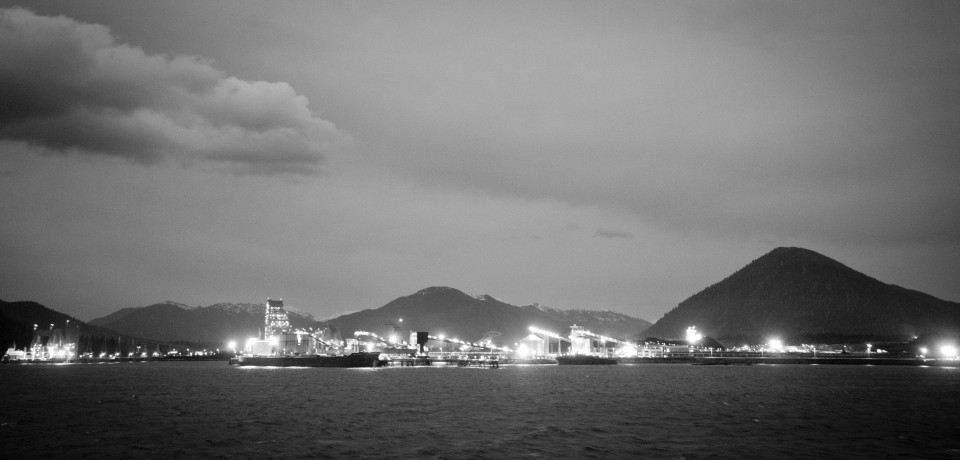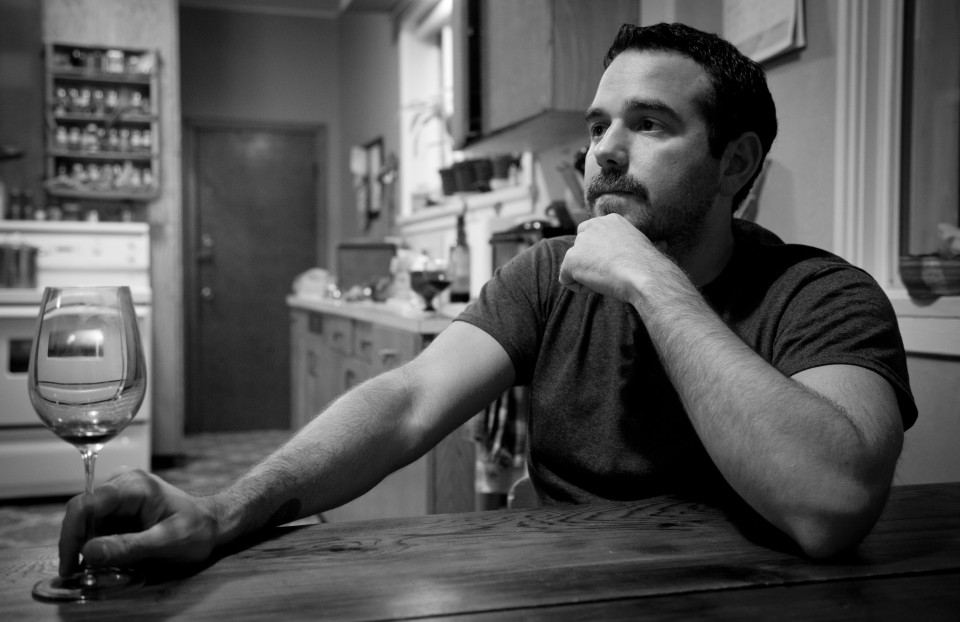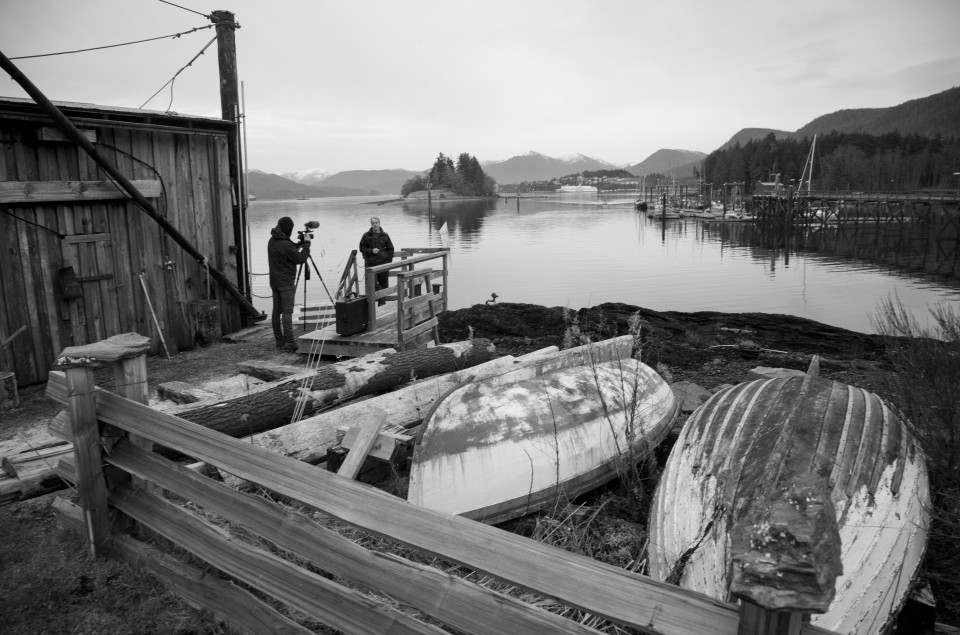[Text: Tomas Borsa. Photos: Skyler Flavelle & Jean-Philippe Marquis.]
The landscape surrounding Prince Rupert is severe, with some of the deepest natural harbour depths on the continent bounded by broad, jagged mountains. It is officially the wettest place in Canada, with an average of 240 days of precipitation per year – and yet, for millennia, the area has been continuously inhabited, providing some of the richest runs of salmon and halibut in the world. Today, it is a city bursting with energy, full of garden spaces, brightly coloured cedar houses, and rich historical buildings. The port is sprawling and perpetually on the move, and is the backbone to Prince Rupert’s modern-day economy. Roughly a hundred years ago, the area was also known for its canneries. Today, the wooden structures that once housed thousands of workers are for the most part abandoned or otherwise dilapidated, and serve as silent reminders of the cruel impermanence of resource-based industries.
Lee Brain is one of the city’s more unique residents. Though he prefers to describe himself as “no one in particular”, he is a profound thinker whose upbringing has given him a unique vantage point from which to assess the merits and pitfalls of the Northern Gateway pipeline. Though today he works as an after school activities co-ordinator, Lee was born in Fort McMurray, the son of one of the world’s most well-respected EPCM-engineers working in the oil and gas industry. In 2009, at the behest of his father, Lee travelled to India, where he was given unbridled access to the operations of one of the world’s largest oil projects, producing as many as 1.2 million barrels of oil per day. While he continues to travel extensively, Lee now calls Prince Rupert home, and we’ve been introduced to him over supper by mutual friends. Much like the Northern Gateway, the project that Lee oversaw necessitated the construction of a large pipeline along the border of Pakistan – and despite being built to cutting-edge standards, the pipeline ultimately failed, contaminating the primary source of drinking water for many surrounding villages. “Could that be the case for our region? Do you see any similarities?” Lee asks.
By some stroke of luck, the following day brings clear skies. We drive to Fairview Harbour, where a dockworker named Dwayne offers to ferry us across to Digby Island to meet with commercial fisherman Des Nobels. As we wait by the gangway, a seal bobs in and out of the water below. A short five-minute trip later, we arrive at the long wooden dock which serves as the only way in and out of the island. Roughly 20 homes dot the bay, each connected by no more than a pathway. Des greets us on the shore, his hair pulled back in a tight grey ponytail. After a quick round of introductions, Des brings us to the shore, where he launches into an explanation of the fishing cycle that the area is known for: early spring brings herring, followed by halibut from April to mid-June. Next come the salmon, with gill-netting taking place until October. Finally, if possible, many spend the winter fishing cod in the Hecate Strait, west of Haida Gwaii, and up and down the mainland coast.
He stops for a minute, before sharing his thoughts on the possibility of a spill in the nearby Hecate Strait, where tankers would regularly pass through. “For us, for the people who live here, and who have made our living from this place, it’s hard to think of it being affected in the manner that it could possibly be. In light of what we’ve seen in Alaska, and the numerous other spills worldwide…these aren’t things that you can mitigate in a year or two. They destroy communities very quickly. And we have a community here.” We venture inside, where Des offers us a plate of smoked salmon and opens a bottle of his own red wine. In a calm but stern tone, he speaks up: “In this area, we’re seeing more frequent storms, and storms of increasing intensity. One thing you learn from fishing over the years…you lose friends here and there. It only takes one mistake. Don’t ever turn your back on the sea.”



